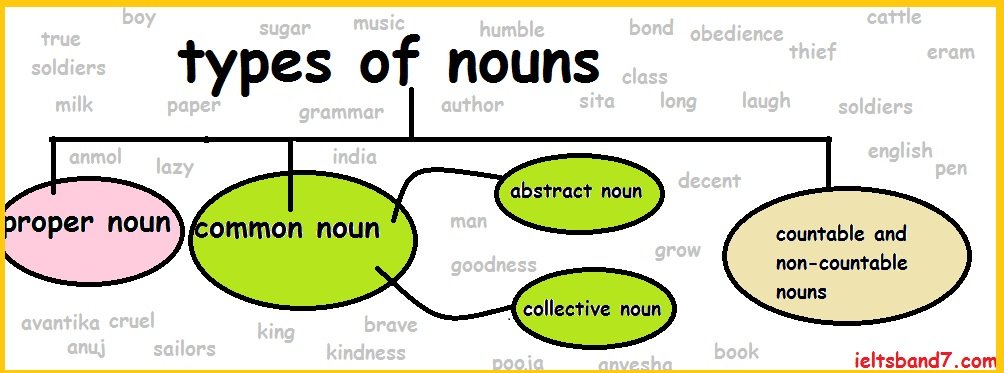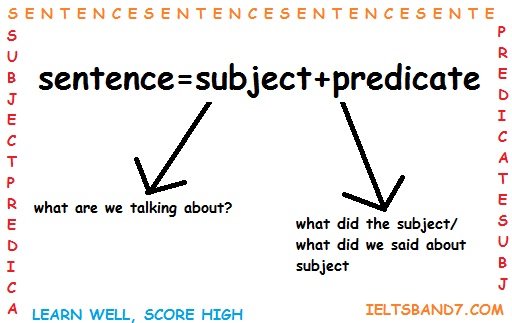Kinds Of Nouns
NOUN
A noun is a word used as the name of a person, place or thing.
For example-:
- Ashoka was a great warrior.
- The French army was defeated at the waterloo.
- I have got three books.
- The crowd was very big.
- Her laughter can swing your mood around.
The words highlighted in the above examples are nouns.
- PROPER NOUN
-
The name of a particular person or thing.
For Example-:
India, Anmol, Kohinoor, Assam etc.- A proper noun is always capitalized.
-
A proper noun can even be used as common noun. For example-:
Kalidas is often called the Shakespeare of India.
- COMMON NOUN
-
A common noun is a name given in common to a person or thing of the same class.
For Example-:
Girl, hero, coward, author etc.
Common nouns are of two types-:
- ABSTRACT NOUN
-
Abstract nouns are used to express concepts, experiences, ideas, qualities, and feeling.
The names of arts and sciences are also abstract. For e.g. grammar, music, chemistry etc.
Abstract nouns can be formed from the following-:- From adjectives-: kindness from kind; strength from strong
- From verbs-: obedience from obey; punishment from punish.
- From common nouns-: kingship from king, theft from thief
- COLLECTIVE NOUN
-
A collective noun is a noun that is used to refer to a group of individuals.
For example-: crowd, mob, fleet, flock etc.
COUNTABLE AND UNCOUNTABLE NOUNS
Apart from proper and common nouns, nouns also have a classification called, countable and uncountable nouns.
- COUNTABLE NOUNS
-
Countable nouns are the ones that can be counted, for e.g. names of object or people etc.
Books, pen, apple, sister are all countable nouns. - UNCOUNTABLE NOUNS
- Uncountable nouns are the ones that cannot be counted e.g. sugar, honesty, gold etc.
Note: countable nouns have plural form but uncountable nouns don’t have plural forms.


